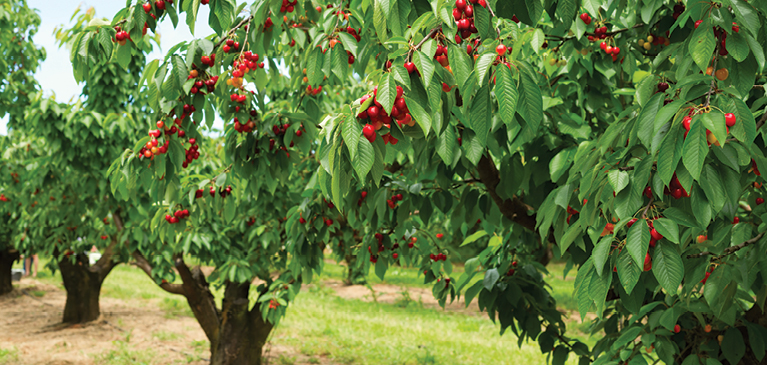
Can you even imagine a Cherry Festival without a cherry tree in sight? How about a region that celebrates cherries without cherries? Unfair trade advantages could in fact eliminate what we know in our region as the cherry capital of the world and an agricultural industry, which is an economic engine for so many businesses and families.
If checks and guards for fairness are not in place, then all could be lost for the beloved cherry trees. Cherry industry leaders recognized something that had become more than a nuisance, and were compelled to address the underlying trade issues in order to safeguard the jewels of our Michigan and Wisconsin cherry growers. Other agriculture commodities could face what the cherry growers faced, hence stay alert and engaged.
While establishing and protecting free and fair trade may feel like a simple important concept to support, the devil creeps into the details. Awaking details to explain lack of fairness can be time consuming and expensive, but this is what a group of growers determined was essential. It took a collaborative courageous group of growers in Washington, D.C. to present the industry story to the International Trade Administration of the Commerce Department. Presenting a case is not something one just strolls into either; it must be well prepared with clear facts just to get some attention. File a petition, get a hearing, roll the dice, and then pray for what should be an easy outcome. Nothing is ever easy. There is a lot of work and expense to protect a market, which was created and grown over years by our growers.
What precipitated the need for such action was the Republic of Turkey. Turkey looked to take advantage of the lack of tariffs, and their government support of the stone fruit industry first with cherries, and you may presume more stone fruits to follow, in essence by subsidizing their growers in a very large way.
As an International Trade Administration panel heard the case within a sterile government environment, all the clear data and unfairness of the trading made the panel react. Growth in imports in the USA from 2016 in an amount of 413,893 to 1,511,977 pounds in 2018 from Turkey feels significant. Labeling differences on whether something is organic or not creates confusion and uncertainty. Pricing and marketing disrupt and corrupt competition and undermine years of work by our growers. More volume and price numbers, like a price per pound going down on cost of imports from $.92 to $.89 in an unrealistic manner and not correlated with true cost.
The biggest impact on the government panel was the compelling story of generational growers and the effect on families and communities. Our growers demonstrated with their testimony caring beyond themselves, love for our region and the families within it. The proverbial cherry on top before all concluded was that our growers demonstrated a compassion for feeding populations with a reliable source of safe healthy food. Taking steps to be heard went much deeper than trade. It was about fairness and clarity.
Further steps will need to be taken across agricultural commodities to protect the stone fruit industry and beyond. U.S. Senator Pat Roberts, R-Kan., Chairman of the Senate Committee on Agriculture, Nutrition, and Forestry, held a hearing in June titled, “Certainty in Global Markets for the U.S. Agriculture Sector.” Chairman Roberts stated, “It is time to look toward the future. While an update of activities is certainly appropriate, today, I hope to also hear about the future of U.S. agriculture trade policy. This includes not just restoring certainty to markets that the U.S. either had through negotiated agreements or as a traditional, competitive supplier, but what will be done to improve access to those same markets and broaden it to others.” He further commented, “The question is, what is being done today that will enable us to be a reliable supplier around the world tomorrow? How can we continue to strengthen trading relationships that we have worked for years to establish, while also building new opportunities around the world?”
For us in Michigan and Wisconsin, our cherry industry leaders have validated the importance of being and staying engaged early and often. Celebrate your engagement with a cherry on top, or risk impact of having people who do not know making decisions without knowing.
To view the full article, click here: https://issuu.com/greenstonefcs/docs/partnerssummer19_web/24


